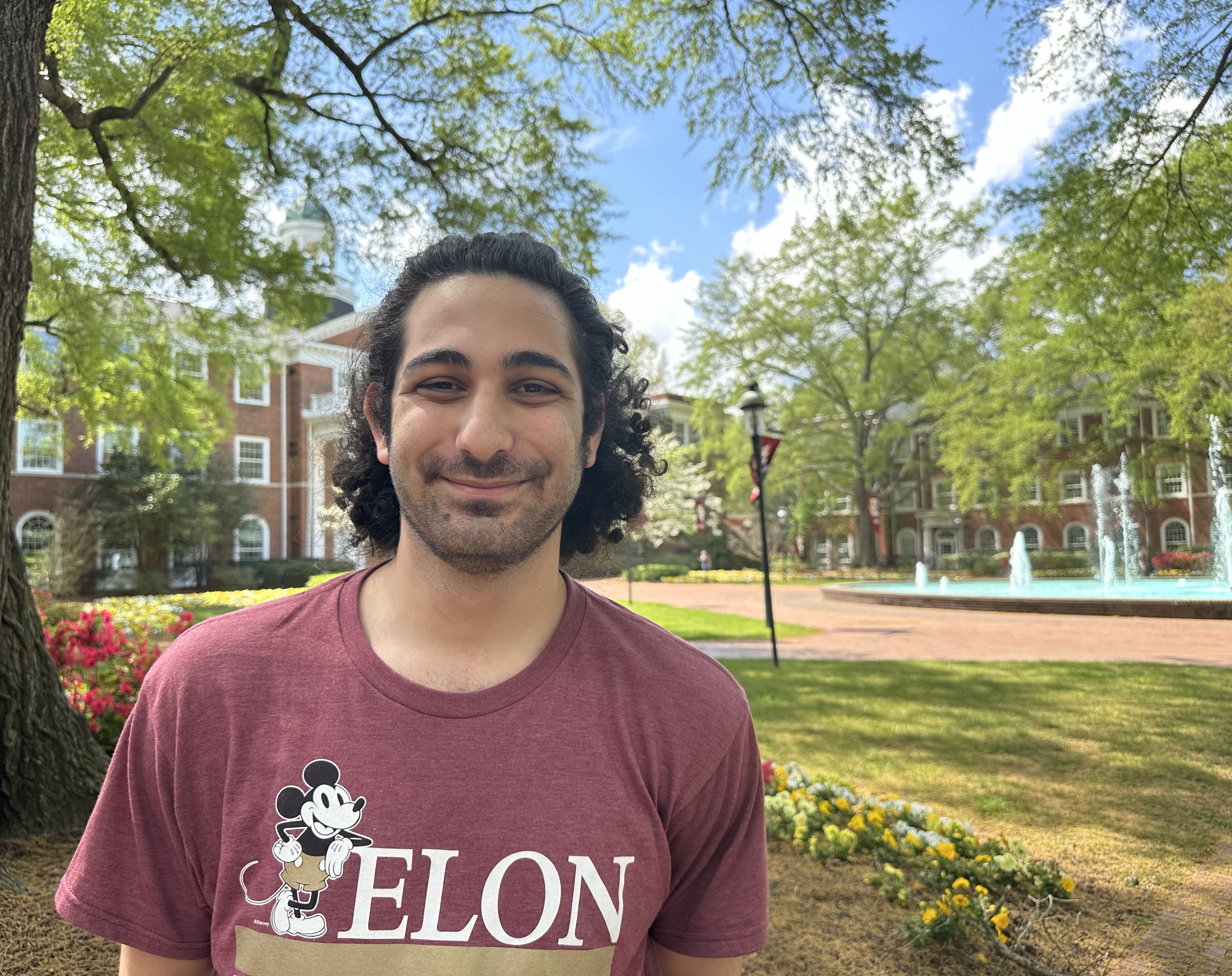Dahdal is one of 438 students across the nation awarded the prestigious Goldwater Scholarship and one of the few to receive the honor as a sophomore.
Rony Dahdal ’26 has been named as a 2024 Goldwater Scholarship recipient. The sophomore is an Honors Fellow and a triple major in computer science, mathematics and philosophy. He is Elon’s eighth Goldwater Scholar.
The award, given by The Barry Goldwater Scholarship and Excellence in Education Foundation, provides scholarships to college sophomores and juniors who intend to pursue research careers in the natural sciences, mathematics and engineering. Fewer than 20% of scholarships are awarded to sophomores.
“I found a love for research early on during my time at Elon and have been set on it as a future career ever since,” Dahdal said. “I enjoy the stimulating, collaborative environment it offers and the focused opportunity to learn fascinating topics within my disciplines that I wouldn’t encounter otherwise. I decided to apply for Goldwater because the mission of The Goldwater Foundation aligned with my own academic and career goals to pursue scientific research and contribute to advancements in my fields of interest.”
The Goldwater Scholarship is one of the most selective STEM awards in the country, with only 483 students named as Goldwater Scholars from an estimated pool of over 5,000 overall students and 1,353 students who were nominated by their respective institutions. The scholarship selects individuals who have a demonstrated passion for research, often exhibited by completing multiple projects at the undergraduate level.
Although only a sophomore, Dahdal is already an accomplished and experienced student researcher. His research journey began after his first year when he joined an National Science Foundation-funded research team led by Elon Assistant Professor Hwayeon Ryu that is focused on creating a mathematical model of complex equations that predict how the human immune system responds to COVID-19.
Currently, Dahdal is constructing an autonomous robotic arm to monitor and tend to crops and training a 3D machine-learning model that can understand plant anatomy, mentored by Elon Assistant Professor Blake Hament. He has plans to present this work at Elon’s Spring Undergraduate Research Forum later this month and at the IEEE SEIDS Conference at the University of Virginia in May.
In the future, he looks forward to his Honors Fellows research — investigating the fusion of high-level sensors and machine learning to extract vital sign information— and participating in a National Science Foundation Research Experience for Undergraduates (REU) at Carnegie Mellon University as a 2024 Amazon SURE Fellow. At Carnegie Mellon, he will be studying the use of machine learning techniques for defense strategies in cybersecurity.
Outside of his formal research, although intimately related, Dahdal can be found leading the Elon Computer Science Team he created. The innovative, student-run organization works with Elon IT to democratize university data for students to build community applications.
Elon is only the first step in Dahdal’s educational journey. Following his time at Elon, he plans to earn his doctorate in computer science with a concentration on machine learning theory and application, with the ultimate goal of becoming an institutional machine learning research scientist.
He is the eighth Elon student to be awarded the Goldwater Scholarship, following Danielle DaSilva ’24, Madison George ’23, Ashlyn Crain ’22, Anna Altmann ’23, Mariana Kneppers ’18, Kelsey Van Dalfsen ’12, and Geoffrey Lynn ’07. When asked what advice he has for students interested in applying for fellowships like Goldwater, Dahdal had a simple yet powerful piece of advice: “I advise students to go for it! Do not define your limits: defy them!”
Elon students and recent alumni interested in the Goldwater Scholarship or other nationally competitive fellowships are invited to contact the National and International Fellowships Office.



